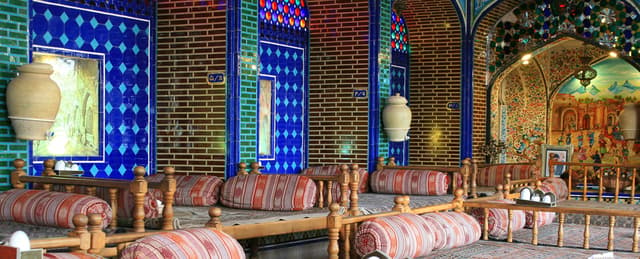The two main aims of commercial names are to identify a business from others and to attract investors and customers. Good commercial names often make use of features such as linguistic creativity, authenticity, appealing concepts and sounds, as well as being triggers for positive emotions, able to be easily remembered and pronounced, and consonant with the field of the business activity and the taste of targeted consumer group. In other words, a good commercial name enjoys a number of linguistic and extra-linguistic features.
Interestingly, the commercial names selected by immigrants also identify which aspects of their identity they wish to share with the host country’s linguistic landscape. For instance, a study on the names of restaurants, supermarkets and cafes owned and/or managed by Iranian immigrants to Vienna (Austria) reflects elements of Iranian’s collective and integrative identity that are beyond their ethnic, religious and linguistic varieties: the land, the ancient Persian (Iranian) civilization, and the national language.
Semantic analysis of Persian data showed that:
• geographical names comprised 27 %,
• 24 % were reminiscent of historical, literary, or mythical figures such as Hatam (pre-Islamic Arab noble), Hafez (Persian poet), Khayyam (polymath and poet), Shahrzad (storyteller in One Thousand and One Nights), Kurosh (founder of the Achaemenid empire), Nima (modern poet),
• ordinary personal names comprised 19 % (Apame, Arvin, Aria, Ariana, Ava, Raman and Niki),
• 13 % were referred to a pleasant atmosphere/food,
• 11 % were marked as names with semantic contents related to nature.
Moreover, the study shows that the Persian language is applied for naming entities that exclusively offer Persian foods, drinks and products while non-Persian names are used for entities selling non-Persian cuisines. The application of the Persian language when offering Persian cuisine and the use of languages other than Persian, like German and Italian, for the names of business entities that offer German and Italian cuisine respectively, may suggest the correlation between the origin of a cuisine and language selection aims at creating an image of authenticity of food preparation and cooking culture. In this sense, language selection in commercial naming follows a pragmatic approach.
Reference:
Akbari, Fatemeh (2019) Immigrants’ business naming: Persian restaurants and supermarkets in Vienna’s linguistic landscape. Onoma 54, 99–116. DOI: 10.34158/ONOMA.54/2019/6

